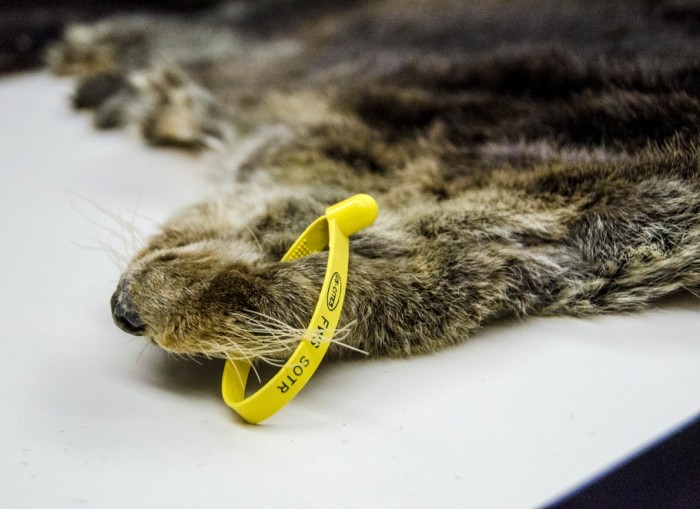
Some legislators hope to find ways to get around federal prohibitions on establishing sea-otter bounties. Backers say the payments could increase legal harvests and slow the otters’ population growth.
Sponsor Bert Stedman proposed Senate Bill 60 to set up a state-funded, $100-per-hide bounty. It would only reward coastal Alaska Native hunters, since federal law prohibits others from taking otters.
The U.S. Fish and Wildlife Service has made clear that a bounty would violate the federal Marine Mammal Protection Act. That’s because such payments could affect otter harvests, which only the feds are allowed to do.
But some lawmakers think there’s a way around it.
“I do not agree at all that the state is not entitled to make that fee. I believe we have it absolutely within our sovereignty,” says Anchorage Sen. Lesil McGuire, vice-chair of the chamber’s Judiciary Committee, which recently took up the bill.
“Where I think the concern is is perhaps the word bounty. Bounty implies incentive. Bounty conjures up all kinds of images. Maybe what the circling back is is to say it’s a subsistence artisanal offset fee” she says.
“It incentivizes taking sea otters,” says Alpheus Bullard, the legislative attorney who issued an opinion saying the bill will likely not pass federal muster.
He says when state and federal law conflict in this area, the feds win.
“At the point we’re just providing a bounty for these taken sea otters, this is a state law that is really inconsistent with the protection of sea otters, which is the purpose of the federal act,” Bullard says.
Backers of the bill want population growth limited because otters eat so many marine species. They say commercial and subsistence divers and crabbers are losing their stocks, valued at millions of dollars a year.
Fish and Wildlife Service spokesman Larry Bell says that’s not a concern included in the federal laws.
“The Marine Mammal Protection Act does not address issues of managing marine mammal stocks regarding their impact – be it beneficial or negative to other species of wildlife,” Bell says.
But some lawmakers want to see what they can do. They include Judiciary Committee Chairman and Senate Majority Leader John Coghill of Fairbanks.
“My commitment is to work with the sponsor to navigate those very areas … . With your minds and with the help of some of my staff, who have legal expertise, we will navigate through this,” Coghill says.
Sitka’s Stedman, the measure’s author, says he’s willing to consider something other than a bounty. He’s suggested several times that alternative approaches might work better.
“They don’t necessarily have to be offset at the level where individuals are harvesting it. It could be backed up into the tannery or the marketing area. We could work with that,” Stedman says.
There’s little chance the bill will go much further this year, since the Legislature adjourns Sunday. But it will continue over to 2014, the second year of this two-year session.
